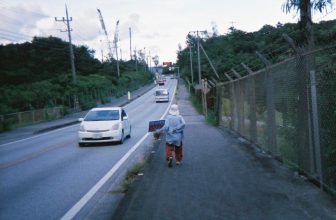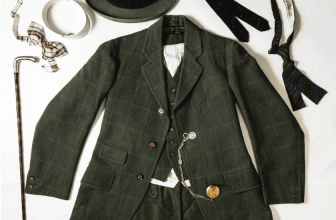
On 6 March 2025, our beloved colleague Sabine Luning passed away. In this blog, we share some of the speeches of colleagues, students, interlocutors, and friends presented at a commemoration in the summer of 2025.
We remember Sabine for being inspiring, critical, and joyful. Sabine conducted anthropological research on a broad variety of themes in a great many regions. For her, ethnographic fieldwork meant building lasting relationships with her interlocutors, and this also deepened relationships with the many colleagues who could share such experiences with her. In her work life, Sabine was also a relationship-builder, inspiring many students, colleagues and societal actors, each of whom still carry the stories of their encounters, adventures and learning experiences with her.
Ratna Saptari
First of all, I would like to thank the organisers that I am included in this moment of remembering Sabine…I think for me and most people here, it is – apart from ‘remembering Sabine’, I would like to add the words – ‘never can forget’! Sabine is always with us. Weeks after Sabine passed away last year, I still had difficulty remembering that Sabine was not with us anymore, physically. Our regular (almost daily or many times a week) WhatsApp communications were always filled with both serious and humorous interactions, and therefore I had to remember that, oh I cannot WA her anymore, because she isn’t here.
I think we entered this institute approximately the same time, in 2007 if I am not mistaken…and although on the surface we had different research topics and areas of research, with her focus on gold mining in Ghana, and mine on cigarette workers in Java, we could talk about various parts of our research interests in our conversations in front of the classroom or during our times drinking coffee together (which was quite often). Also, she was always very clear about her political and academic engagement in her research topic, about the unequal distribution of wealth, which was for me very inspirational and heart-warming.
I am very fortunate that I could teach one topic together with her, namely Global Economy and Culture (I think it was around ten years ago) that I could really see her passion, energy and humour which gave a very delightful atmosphere in the class, and where we would make fun of each other (in front of the students), in between serious reflections on the literature and the themes discussed, that we became a kind of Laurel and Hardy in the room. Of course, between us, she was the best lecturer and one could see also in the evaluation by students how much they really adored her.
I am also very fortunate that prior to her being ill, because she was asked to give a short-term course in Semarang, she managed to visit me in Jogja, and she stayed with us two nights before her trip to Semarang. And fortunately, I was able to go with her by train. The photos that I show, are her moments there. It was when she was getting ready to go back to Holland that she felt something was not right with her physically, which started from her throat. Later, she communicated via WA that it was more serious. I am so glad I managed to visit her at her house, but only later on discovered that she had terminal cancer. I was heartbroken, because apart from being very close to her, she was a very inspiring, passionate, engaged but also modest person, who gave a very significant and lovely atmosphere to our institute. We will all miss her.

Erik de Maaker
“Hi, how are you?” “Fine!” Often followed by a “just returned from … (somewhere abroad).” Her coat, throughout much of the year a light blue down padded one, would be on a coat hanger on the wall next to my desk. The coat hanger is still there, her coat sadly no longer. Casual, everyday, trusted, those were key to the exchanges we had. And so it is absolutely incomprehensible that she is no longer there.
I first came to Leiden as a student, to specialise in Visual Anthropology. Sabine was then a student assistant. Many years later, when we both had become faculty at CADS, we came to share the same room.
Sabine could be really upfront, responsible, and – if she felt like – confrontational without the desire to give in. A colleague who she had told “You really can’t act like this” later on expressed her appreciation for Sabine’s honesty and for being direct. The colleague told me, by way of explanation, that she considered Sabine “the conscience of the institute”. I think many of us were grateful to Sabine for taking on that role, and miss her all the more for no longer being among us.
What I cherish most, is that we always managed to make each other laugh. Sabine and I both had had Jarich Oosten as one of our PhD supervisors. Jarich, who has sadly passed away much too early in 2015, hailed from Groningen, the north of the Netherlands. He had a characteristic way of putting things, which we both recognised. As an example, here is his response to the difficulties which many young academics face in making a career as well as raising a family. “If only it wouldn’t be so terribly unfriendly to family life.” Jarich thoroughly enjoyed his academic work (as do most of us), but he also noted that this implies us being behind our screen at times which should strictly speaking not be dedicated to work (weekend, evening, holidays….). If I brough up with such a quote, Sabine would say “Did he really say that?”, to then roll over with laughter. Or this one about having children: “Having children is not a rational decision. They cost lots of money, and tie one down.” To then add: “but people are of course not at all rational.” The latter, of course, was what he wanted to say. I don’t think I can convey just why this could make us so cheerful, but it did, and we really bonded over such conversations, and the laughter that invariably followed.
I held the vague expectation that one day Sabine and I would travel together, because I would have wanted her to meet the people, and see the places, which have over the years been so important to me academically, as well as in terms of friendships. Unfortunately, that did not happen.
I cherish my memories of Sabine for who she was, and for the cheerfulness she could bring.

Gerard A. Persoon
During the start of a Water Course in the Philippines, amidst the heavy traffic in the streets of Manila on a rainy day, Sabine and I noticed some interesting words on a Jeepney. The art of living is to keep a good heart. And Always be a child. As we were stuck in a traffic jam we managed to take this picture. I remember that it was the start of an interesting discussion about the Art of Living. And what we could learn from the world through an open mind, and always ask questions about what we see and hear around us, just as children do, and without taking too much for granted. It is a useful attitude that we used during the introductory lectures for Dutch and Filipino students a few days later in Cabagan.
Sabine and I differ enough in age to have missed one another during our studies. I was about to leave the Institute to go to Indonesia for a few years when Sabine started her first year. In fact, I only got to know her during her work at CNWS while I was working at the Institute of Environmental Science. Things started to change however when I returned to the Institute in 2009.
With her interest in all kinds of environmental issues, Sabine became a dear and close colleague. This was further stimulated by the joint supervision of a number of students. In spite of her strong focus on Africa, gold and mining, she was equally interested in a wide range of topics in other places that I was working on (product certification, timber, water, indigenous rights).
And that is why she eagerly accepted the invitation to join the international Water Course in the Philippines. With her warm personality, her open mind, her enthusiasm, her stimulating and inspiring way of teaching and supervising students and her enormous commitment for the tasks commissioned to her, it was always a pleasure to work with her. In that sense she was a real team player.
These characteristics however also came at a price. Facing a heavy workload, deadlines to meet, and now and then having to cope with the sloppy and unsatisfying performance of others, she could really be disappointed and feel that she was not treated fairly or with the respect that she deserved. And she dared to show and express that disappointment openly.
While going through some of my old files, I came across the pictures of a beach-combing excursion of a batch of our MA students to Katwijk. On such occasions, one could see Sabine at her best: good humoured, a big smile, full of action and with an open eye to all people present.
And of course, Sabine could not refrain from digging into the sand, hoping to find some ‘gold’.
During the past few years, and since my retirement, our contacts were less intense. Once in a while we met at the Institute or during joint supervising sessions with Thijs Jan working on his PhD. The last more intense meeting we had during the long ride to Jan and Tessa’s party in Culemborg.
Sabine was certainly one of those persons you don’t need to see every now and then to have interesting and meaningful discussions. Even after a long time it was easy to catch up with her and talk about the things in life that really matter, in addition to having fun together and a good laugh about silly things and with a good deal of self-reflection and self-mockery. In short, valuable lessons about the Art of Living, for which I’ll always be grateful.

James McGrail
On my first day at Leiden for the master programme, after a brief introduction to the course, Sabine told us it was time to pitch our research project to the assembled supervisors. Right away a big crowd formed around Sabine because, well, Sabine is Sabine, but also because there were only a handful of spots to join her field school in Ghana.
We circled around her, but no one said anything. I think most of us didn’t actually have a research idea and after a few seconds of us all just looking at each other she clapped her hands and said, “come on then, what’s your idea” and pointed at me. So, I fumbled through some idea about how Uber was changing the taxi industry in Accra, and she said, “yep I’ll have that, what about you?” and pointed at the next person along. That’s how Sabine became my supervisor, and I got a strange feeling in that moment that we would also be friends. I told her that last year and I sort of wish I had told her that and called her my friend sooner. But she told me she knew back then we would be friends too.
That’s not to say we always got along. I think my absentmindedness infuriated her sometimes. I distinctly remember spilling an entire bottle of water over her desk which was covered in articles and another time when I dropped my wallet while I was cycling, and she had to chase after me carrying it. Both times prompting her to say, “stupid boy.” Even though I can be a stupid boy – she was always unfailingly kind to me.
That was especially true during the field school in Ghana where I was incredibly anxious. On our second day in Accra I was having a bit of a wobble, and so we went out for a cigarette. In Ghana, smoking is pretty frowned upon, so the two of us were hiding in a bush next to a carpark. We didn’t talk about the research. Instead, we gossiped about everything that was going on with the Ghana group – that’s what we’d imaginatively named ourselves – and then my cigarette dwindling she clapped me on the shoulder and said in her classically straight forward way: “you’re going to be fine.” I believed her.
A week or so later we all parted ways. The rest of the Ghana group went off to other towns and villages in pairs while I stayed behind in Accra alone. This was my first fieldwork, and I was pretty scared. I told Sabine so and she suggested I find a bar, get a beer, and give her a call. Our beers by phone turned into a weekly ritual during my fieldwork and with her company I found the bravery to do my research. Lectures, tutorials, and readings made me a student of anthropology, but it was Sabine’s belief and companionship which made me an anthropologist.
It’s not that she was my teacher and my friend but that, I think, for Sabine those two things were connected. She was an amazing teacher because she was a great friend.






